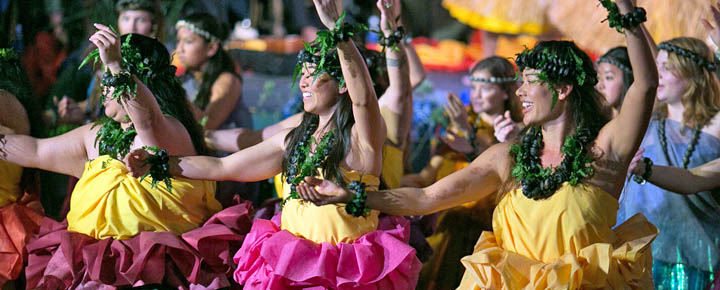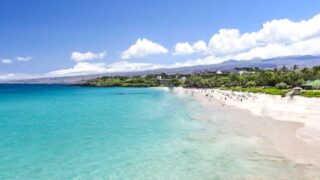A common question quickly emerged yesterday when using the word “Hawaiian.” It’s important enough that we wanted to take a minute to help clarify an important distinction when referring to residents of Hawaii.
This discussion served to highlight a significant distinction between being “Hawaiian” and being “from Hawaii.” Understanding the difference is essential not only for correct and respectful communication but also for acknowledging the unique cultural identity of Native Hawaiians.
“Please educate me … how do you refer to residents of the state of Hawai’i? I understand your reasoning for referring to the true natives, but I am curious about how to refer to non-native residents.”
The Essence of Being Hawaiian.
You can be born and raised in Hawaii and not be Hawaiian. Here’s why.
The term Hawaiian explicitly refers to the indigenous people of Hawaii, who have a rich cultural and historical heritage. Hawaiians are descendants of the Polynesians who settled the Hawaiian Islands long ago, developing a distinct culture, language, and traditions. This ethnic identity is a source of pride and significance, carrying deep-rooted connections to the land and history of Hawaii.
The origins of native Hawaiians can be traced back to the first Polynesian voyagers who arrived from the Marquesas Islands around 1,500 years ago. Early settlers, these skilled navigators used stars and ocean currents to traverse vast distances across the Pacific Ocean, some 2,500 miles. Centuries later, another wave of Polynesians from Tahiti further influenced Hawaiian culture.
These settlers and their descendants developed a distinct and rich culture, marked by advanced agricultural techniques and a deep spiritual connection to the land. The arrival in Hawaii of Europeans in the late 18th century brought changes, including disease, that drastically reduced the native Hawaiian population. Political upheaval culminated in the overthrow of the Hawaiian monarchy in 1893. Despite these challenges, Native Hawaiians have, to this day, preserved their cultural heritage and are fostering a modern revival celebrating a unique identity and history. Native Hawaiians never directly relinquished their claims to inherent sovereignty to the United States.


According to the Hawaiian Homes Commission Act (HHCA) of 1921, a person must have at least 50% Native Hawaiian blood to be legally recognized as Native Hawaiian. This definition, in part, determines eligibility for certain benefits and land leases provided by the Department of Hawaiian Home Lands (DHHL). If someone has less than 50% ancestry, it may be considered more appropriate to write in lowercase, native Hawaiian.
However, it’s very important to note that cultural and community recognition of native Hawaiian identity can be more inclusive and not strictly tied to blood quantum. Many native Hawaiians emphasize genealogy, cultural practice, and community involvement as essential parts of establishing identity.
“Perhaps you could stop referring to everyone as ‘Hawaiians.’ Hawaiian is an ethnicity, not a collection of zip codes.”
According to the State of Hawaii, “A person may be from Hawaii, but should not be referred to as ‘Hawaiian’ unless they are of native Hawaiian descent.”


Residents of Hawaii: Hawaiians, Locals, and Hawaii Residents.
For those who live in Hawaii but are not of Hawaiian descent, the appropriate terms may be “locals,” “Kamaaina,” or “Hawaii residents.” These distinctions, while real, aren’t as substantive as Hawaiian vs. other terms. These include people from diverse backgrounds who call Hawaii home, whether they were born there (often called locals) or moved to the islands (Hawaii residents). Using these terms helps distinguish between the Native Hawaiian ethnicity and the state’s broader population.
Associated Press issued guidelines on how to refer to people in Hawaii.
Recent Associated Press style guidelines state: “Use the term Hawaii residents — not Hawaiians — for the overall population of Hawaii. Use the term Hawaiian or Hawaiians only for members of the ethnic group indigenous to the Hawaiian Islands.”
Comparisons and clarifications with other populations.
To further clarify, let’s compare this with Alaska, where the naming protocol works quite differently. In Alaska, the term “Alaskan” applies to all Alaska residents, while “Alaska Native” refers to Indigenous peoples. This distinction is different but akin to the differentiation in Hawaii. While all who live in Hawaii can be called residents or locals, only those of Indigenous Hawaiian descent should be referred to as Hawaiians.
“Residents of, say, Alaska, are known as Alaskans, whether they are native tribal people or not.”


Respectful communication: a good way to be a visitor in Hawaii or elsewhere.
Understanding and using terms correctly is crucial for respectful and accurate communication. While having no mal intention, referring to all residents as “Hawaiians” can easily be viewed as diminishing the unique identity of the native Hawaiian population. By using “locals” or “Hawaii residents” as appropriate, we acknowledge the diversity of the population while honoring the distinct heritage of native Hawaiians.
“I apologize. My admittedly ignorant use of the word was an innocent mistake. Your response seems calculated and a prime example of how locals feel about tourists.”
Your reactions in comments.
In response to our recent article about a Southwest Hawaii flight attendant’s comment, the community’s reactions further highlight the sensitivity around this topic. One commenter noted that the generalization of referring to everyone as “Hawaiians” was “cringe-worthy,” underscoring the importance of using accurate terminology.
“The ‘… Hawaiians…’ comment and generalization was cringe-worthy, at best, I agree🤙.”
It goes beyond a matter of semantics in Hawaii.
Recognizing the difference between “Hawaiian” and “from Hawaii” is more than a simple matter of semantics. It reflects an understanding and respect that is the foundation of respectful travel anywhere in the world. In Hawaii, it speaks to honoring the cultural identity of Hawaii’s native people and the broader community of residents. As we continue to celebrate the rich heritage of the Aloha State, including native Hawaiians, let’s use language that honors and respects people.
We invite our readers to share their thoughts and experiences on this topic. Have you encountered similar situations? How do you navigate these distinctions in your communication? Please share your comments below!
In addressing this topic, we hope to foster a deeper appreciation and respect for Hawaii’s unique cultural identities. Mahalo for your participation and willingness to learn!
Get Breaking Hawaii Travel News







If I need to try to be politically correct to appease a “Hawaiian” vs “someone from Hawaii (Californian, Texan, Floridian). Then that “Hawaiian” is a not worth the time. Unfortunately there are far too many “Hawaiians” that wake up and spend all day being angry and trying to find things to complain about. Maybe Nevadans don’t want so many “Hawaiians” in their State?
Unbelievable response. No cultural sensitivity, no concern for those whose histories have been almost erased and whose country was overthrown.
People wondering why locals call tourists “entitled” and don’t shower them with aloha, take note. Years of this kind of attitude, displayed this way and in other actions by people who are Guests in our place of residence.
Thank You! Than YOu! As the person who made the zip code comment, this article is greatly appreciated. I cannot count how many times I have made similar comment here…and all getting a combination of honest apologies, backhanded apologies, and sneers, always from those who do not reside here.
Being “Respectful” has always been a two-way street. I was brought up, taught how to be respectful and courteous, expecting the same in return. If this is too much for someone to understand, I wonder what superiority high that person, or people, are on. Who were the “Original” inhabitants of the Hawaiian Islands? Certainly Not those who have made it their ancestral home, for approximately 1,500 years from Polynesia. I said this to make a distinct point and not an argument. We all seem to be from somewhere else, maybe from several places, prior to laying a current and constant presence for history to recognize. Respect one another and the land.
I’m really glad you took the time and effort to explain this to those who were not aware. It’s one of the major facets of life here that many visitors miss.
Another aspect is the unique local culture, shaped by immigration primarily from Asia during the plantation era. Society here is much more family-oriented and permission-based. This perhaps is the second most frequent area where visitors go wrong. Unlike the rugged American individualism of rights and freedoms, life here is a series of unspoken rules about behaving in a way that is respectful, avoids conflicts, and seeks permission. Many often refer to it as the “aloha spirit”, but that term has recently been weaponized by an entitled few who wield it to complain when their expectations are not met with immediate subservience. Please don’t be one of those people.
I was born in California, but my dad, Grandfather, and Great-Grandfather were born in Hilo, and all of my relatives live on either the Big Island or O’ahu. I have a trace of Hawaiian blood, but not much. And even though I don’t live in Hawai’i, I consider myself Hawaiian, as I follow our cultural standards. Plus, I love Poi and Opihi’s!! 🙂
If you can recite your moʻokūʻauhau back to 100% kānaka, youʻre Hawaiian, regardless of blood quantum.
When I was stationed on O’ahu in the late 80s, the information I read on native Hawaiians, perhaps excluding Niihau, was that there were only about 1,500 native Hawaiians left. 40 or so years later, how many are there now?
Jeff, the study that your information was based upon was found to be heavily flawed, unreliable. The follow-up study performed found that there were actually several thousand. The first study had determined that within three generations there would remain only a few, if any, remaining. The subsequent study showed that, although declining numbers, there would be many hundreds, or possibly as many as 1,200, into the year 2100.
I feel we should be doing the same for Native Americans. If we call them Native Americans, aka Native Hawaiians, then I’m called American – but can’t be called Hawaiian if I’m from here?
My sense is the difference lies in specificity. Hawaiian is the only name for native Hawaiians, a single group; yet there are numerous indigenous peoples in North America and Alaska; 229 federally recognized tribes in Alaska alone.
I prefer the term “indigenous” for that reason. Among humans “native” means only that one was born there.
I am descended of the indigenous peoples of northern Europe, what is now Norway & Sweden. But I was born on American soil of US citizens. In a naval hospital, the son of a US Marine, no less. So I consider myself a native American.
Yet, I would guess the indigenous, ie, Native Americans, would find it offensive that you refer to yourself that way.
I’m 12% American Indian. Not “Native American”. The reason why there is a Smithsonian Museum of the American Indian is because after an exhaustive survey the Smithsonian found that the overwhelming preference among First Americans is to be called American Indians. Strangely, the most resistance to the term comes from Caucasian non Indians who don’t like to have their view of the world upended by inconvenient things such as the preferences of the group being described… Please use our preferred title and No, I’m not offended in the least bit. I too am a proud “Native American” in the OP’s context…
Best Regards
You wrote: “I am descended of the indigenous peoples of northern Europe, what is now Norway & Sweden. But I was born on American soil of US citizens. In a naval hospital, the son of a US Marine, no less. So I consider myself a native American.”
How exactly does being an Indigenous person of Europe and Sweden translate to you later writing “I’m 12% American Indian.”?
You might have been born on US soil, and to a citizen parent. That does not bridge the difference between your two statements.
OK Karen… Please get yourself straight on who you’re actually talking to before you start typing… Friend don’t let Friends type in total confusion
Thank You!
To Diana
The 12%-er is Jay H, not me. I am of northern European descent & 4th generation American.
Technically in this context “Indian” is a misnomer. An Indian is a native or citizen of India, which is where the early explorers thought they had landed. In sailing west they were unaware of the American continents existence.
Great article educating those that are unaware and may now visit more respectfully. Kudos BoH!
Hi Kay, Glenna and others.
Thank you!
Aloha.
I find it interesting that it has to be explained because Hawaii and Alaska are states. If you ask people born in Idaho, Illinois, Kentucky where they’re from, they don’t say they’re Idahoan, Illinoisan, Kentuckian; they’ll just tell you where they were born or live. As you’ve stated, unless you’re indigenous to Hawaii and Alaska, you’re just born there/a resident of.
Everyone is still from somewhere else! Even Hawaiians. We should all be inclusive. Not territorial. You are still an immigrant. Period.
Sure, we are all immigrants. Polynesians immigrated here and became Hawaiians. They came to settle, thrive, and shape the land and culture. They invaded one another, competing for land and power, in order to unify under one Hawaiian identity.
Japanese, Chinese, Filipino, and other immigrant populations came here to work, live, thrive, and to assimilate. They were generally inclusive. We seldom hear stories of these populations attempting to conquer or exploit.
The British and Americans came here, using christianity and capitalism, to exploit and conquer just like they did in Asia, Africa, and the Americas. They were rarely inclusive. They were imperial colonizers. Period.
I (we) can’t undo the past, the results are far too permanent, for better and worse. I am a resident primarily thanks to my European roots, but my Respect is for the Hawaiians and the locals who have lived here for generations.
Aloha-Thanks so much for the explanation. It makes sense now. I am always a respectful visitor and will continue to be. I do think the knee jerk reactions of some who take it as slight even if it was an innocent mistake is an example of a separate issue of people in general just being overly sensitive about everything.
Thanks Jon.
We appreciate your many comments over the years.
Aloha.
Great thoughts Jon D.
It seems to me that everywhere people are more sensitive, not just in Hawaii, but all over the mainland too. We all need to just “chill out” a bit, be calm, sit down and “talk story” with one another. I would also add that sharing a Mai Tai will usually lead to much understanding and comradery with one another.
Aloha to all.
Mahalo for the clear and logical explanation!
A clear and helpful explanation, including the encouragement to honor and respect the unique cultural identity of being Hawaiian. Thank you, BOH!
Just like with Native Americans, who receive special benefits in government assistance and in college and job admissions, how does one “prove” they are > 50% of pure Hawaiian heritage? Birth records aren’t available from those times, and who decides if they qualify?
The large majority of Hawaiians have “intermarried” between races, and their offspring may further intermarry. I suspect it is largely an honor system, with some qualification judges tipping the scales at time. What is sad is how a certain political party divides people between different races and ‘the oppressed vs the oppressors.
In daily conversation, it may be an “honor system”, but, to qualify for benefits available only to Native Hawaiians, people have to prove their lineage, whether you believe it is possible or not. It took my stepson almost a year to get the right paperwork required to prove heritage for our grandchild to attend Kamehameha Schools.
I’m totally on-board with this and understand the context. Everyone needs to have grace and understanding when dealing with other people, whether culturally, socially or politically.